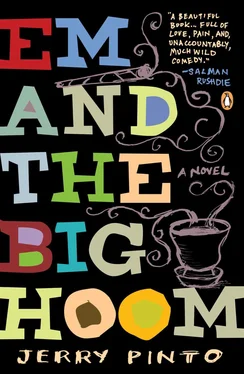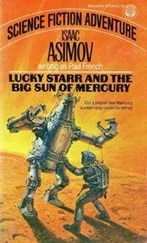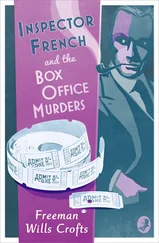Jerry Pinto - Em and the Big Hoom
Здесь есть возможность читать онлайн «Jerry Pinto - Em and the Big Hoom» весь текст электронной книги совершенно бесплатно (целиком полную версию без сокращений). В некоторых случаях можно слушать аудио, скачать через торрент в формате fb2 и присутствует краткое содержание. Год выпуска: 2014, Издательство: Penguin Books, Жанр: Современная проза, на английском языке. Описание произведения, (предисловие) а так же отзывы посетителей доступны на портале библиотеки ЛибКат.
- Название:Em and the Big Hoom
- Автор:
- Издательство:Penguin Books
- Жанр:
- Год:2014
- ISBN:нет данных
- Рейтинг книги:3 / 5. Голосов: 1
-
Избранное:Добавить в избранное
- Отзывы:
-
Ваша оценка:
- 60
- 1
- 2
- 3
- 4
- 5
Em and the Big Hoom: краткое содержание, описание и аннотация
Предлагаем к чтению аннотацию, описание, краткое содержание или предисловие (зависит от того, что написал сам автор книги «Em and the Big Hoom»). Если вы не нашли необходимую информацию о книге — напишите в комментариях, мы постараемся отыскать её.
Em and the Big Hoom — читать онлайн бесплатно полную книгу (весь текст) целиком
Ниже представлен текст книги, разбитый по страницам. Система сохранения места последней прочитанной страницы, позволяет с удобством читать онлайн бесплатно книгу «Em and the Big Hoom», без необходимости каждый раз заново искать на чём Вы остановились. Поставьте закладку, и сможете в любой момент перейти на страницу, на которой закончили чтение.
Интервал:
Закладка:
But being an atheist offers a terrible problem. There is nothing you can do with the feeling that the world has done you wrong or that you, in turn, have hurt someone. I wavered and struggled for a long time before I exiled myself from God’s mansion.
I had stopped going to church for a while before that, but when anyone required me to go, whether as escort or mourner or celebrator, I went without demur or comment. The only change I made was in my recitation of the creed which I boiled down to four words: I believe in Jesus Christ.
Because I did. I believed in him and the Buddha and Krishna and Allah because you can believe in anything if you look straight at the message.
Love one another? Good idea.
Detach yourself? Good idea.
Do your duty? Good idea.
Submit to the will of God and go with the flow? Good idea.
In a perfect world, you could even play with permutations and combinations of the above.
Submit to the will of God because he wants you to love everyone and do your duty.
Or, alternatively, detach yourself from everyone as an act of duty to God’s will and you will experience perfect and equal love.
It is difficult to see how detachment and love might fit together but the Greeks had a go with agape . Only, they didn’t use it much, just coined the term and left others to bother about the repercussions of loving someone else with benevolent detachment. It wouldn’t work for me. I have to connect to love. I am imperfect, my world is imperfect, I have no time for solutions premised on perfect persons seeing the perfection of solutions that work in a perfect world.
None of my friends would have been surprised by my loss of faith. Most of them were atheists via Marx or Freud and others were agnostic. The few who professed any faith at all hedged it around with disclaimers involving words like meaning, quest and spirituality. No one pushed them to explain. The coyness with which Victorians had approached the sexual was translated into the discomfort with which we approached God. These words were the equivalent of the frilly pantalettes with which the Victorian bourgeoisie covered the legs of their pianos. The mess of faith, the joylessness of disbelief, all these were covered up.
Perhaps that’s unfair. All the words about the really important things become chiffon representations of themselves soon enough. Some can be reinvented but others can only be discovered by a personal encounter. Love is a hollow word which seems at home in song lyrics and greeting cards, until you fall in love and discover its disconcerting power. Depression means nothing more than the blues, commercially-packaged angst, a hole in the ground; until you find its black weight settling inside your mother’s chest, disrupting her breathing, leaching her days, and yours, of colour and the nights of rest.
But in the summer of lithium carbonate, things were different. Em and The Big Hoom had begun to go out for dinner again. They had started taking walks in Shivaji Park together — short ones in Em’s lower phases and longer ones when she was feeling active. They would return with something to eat — fruit sometimes, or a big packet of sev-ghantia — as if we were children. We played along, eating bananas or crunchies as if offered a rare treat.
Then it was over.
One day, Susan came home and Em was at the door. She was snarling slightly, under her breath.
‘Come in,’ she said to Susan. ‘Come in and get behind me.’
‘What is it?’
‘Nothing,’ Em said. ‘Come on then, ya bastards. Come and try what you want. You can’t take her without getting past me first.’
‘Who writes your dialogue?’ Susan asked. Oddly, that penetrated the thick red mist.
‘Do you want some tea?’ she asked.
‘Yes,’ Susan said and watched as Em stood staring at the pot.
‘Come and sit down and have a samosa,’ Susan said.
Em grabbed the samosas and threw them into the dustbin.
‘No one is to eat a thing that hasn’t been cooked in the house,’ she said. ‘They might poison us.’
‘They’ were back. And we went back to the psychiatrists hoping for another drug. There was none. The pharmacopoeia was exhausted; we were back to the old faithfuls — Largactil, Espazine, Pacitane for the highs and Depsonil added on when she was depressed. Only this time, we were depressed.
Granny tried to offer me consolation. She tried to tell me the story of the king who looked at his ring in good times and in bad. On his ring there was inscribed, ‘This too shall pass away.’ Like so many young people offered this purulence of cliché, I said in my heart, ‘Fuck off, you stupid old shit with your chutiya clichés and your kings with rings.’ In real time, confronted by my grandmother’s much-loved, guilt-worn slow dissolve of a face, I said, ‘I’ll make tea.’
‘I’ll have a cup too, you silly bastard,’ said my mother. ‘Not that you were. He took my hymen with his danda, he did. And then three years later, bang on the dot, there you came. Do you know Susan took ten years off the Limb’s life? He was white with fear because of my screams. But you? You just popped. They shouted — “The head” — and there you were. A tit man too. You just found the nipple and latched on. Susan, on the other hand, just wouldn’t drink. She must have known, woman to woman, she must have known that they had got to me. Don’t let them get at the tea. They’ll send beautiful girls who will try to bamboozle you.’
‘What Imelda…?’ Granny tried to stem the tide.
‘You don’t know anything, Mae. You don’t know anything. You don’t know how they work.’
‘Who is…?’
‘They target young men. They work on them through the sex instinct. It’s very strong in young men. Do you know, Mae, I read somewhere that women peak later but men come into their sexual prime at the age of eighteen. What do you think he would have been like at eighteen?’
‘The king with the ring?’ I asked. It was enough to distract Em from a subject I hated: her sex life with The Big Hoom. She brayed with laughter, demanded another beedi, and asked me whether I was waiting for an embossed invitation from the Queen before I made the tea.
In the kitchen, I could hear Granny trying to convince Em that no one was after her. I felt my rage rise again. Years of this, no, decades of this, had not taught Granny a simple truth. There was no way into my mother’s head. Not at this stage. For most of the year, it was possible to carry on a conversation, even to influence her behaviour with ordinary logic. But when she was twitching with despair or riding the crest of a wave of laughter and fury, you could only make contact by mistake.
‘How was your day?’ Susan asked her once, when she was depressed.
Em sat up bolt upright in bed and then her shoulders collapsed. Her face crumpled like a little girl’s and she began to wring her hands.
‘Am I a standing red pen?’ she asked.
It would be funny many years later. It would become a family symbol for the cross-connections and misunderstandings that happened when our words went through the prism of Em’s illness. They turned into something exotic and bizarre, bearing only a surface resemblance to our meanings. But at that moment, the question came out of the pit. It was coated with the animal intensity you see in the eyes of a dog hit by a car and dying on the road.
‘No, you’re not,’ said Susan firmly. She was taking a huge chance.
‘Oh thank God, thank God,’ Em sighed and lay down again.
Susan looked around the room for red pens. She checked the house for them. ‘I was wondering if there was a standing red pen somewhere. I thought: is this some kind of symbol? I thought: you know, she was a teacher. Red pens? Corrections? Right and wrong? I don’t know.’
Читать дальшеИнтервал:
Закладка:
Похожие книги на «Em and the Big Hoom»
Представляем Вашему вниманию похожие книги на «Em and the Big Hoom» списком для выбора. Мы отобрали схожую по названию и смыслу литературу в надежде предоставить читателям больше вариантов отыскать новые, интересные, ещё непрочитанные произведения.
Обсуждение, отзывы о книге «Em and the Big Hoom» и просто собственные мнения читателей. Оставьте ваши комментарии, напишите, что Вы думаете о произведении, его смысле или главных героях. Укажите что конкретно понравилось, а что нет, и почему Вы так считаете.











